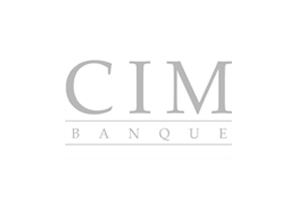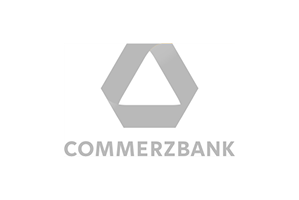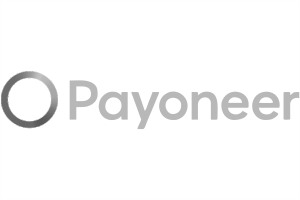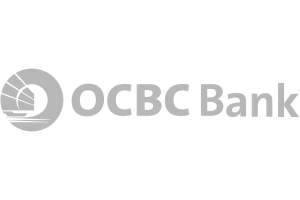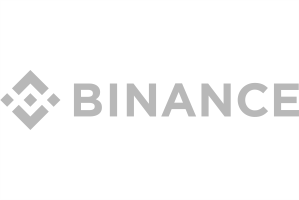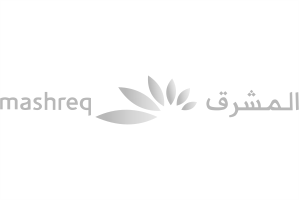Malta is primarily about a reliable and respected gambling sector, where the MGA (Malta Gambling Authority) issues appropriate licenses for successful activities in this niche. Having received such certification, you can get access to online casinos, sports betting, and so on. Among the essential aspects that applicants must demonstrate are financial stability, data protection, player safety, and strict risk management protocols.
When you get a Malta gaming license, you immediately gain a certain prestige in the industry. Operators now have access to a broad European and international player base, which will increase their credibility. There are different classes of licenses to choose from, such as B2B, which is vital for software developers, or B2C for online gambling providers.
Regulatory Framework and MGA Oversight
Malta defines “gaming” broadly, encompassing all gambling activities, as per the 2018 Gaming Definitions Regulations. The Malta Gaming Act of 2018 chiefly regulates the industry, focusing on public interest alignment, sustainable growth, and establishing Malta as a gaming expertise center. It addresses auditing, protection of minors, and player responsibilities.
Essential legislations under the Gaming Act include:
- Gaming Authorisations Regulations
- Gaming Commercial Communications Regulations
- Gaming Compliance and Enforcement Regulations
- Gaming Player Protection Regulations
- Gaming Premises Regulations
- Gaming License Fees Regulations
- Gaming Tax Regulations
- Social Causes Fund Regulations
- Retention of Data (MGA) Regulations
The Malta Gaming Authority (MGA) ensures fairness, crime prevention, and protection of vulnerable groups. Its responsibilities include monitoring gaming operations, guiding the public, guaranteeing responsible advertising, resolving player complaints, and managing data.
Operators must adhere to the Gaming Player Protection Regulations, ensuring measures to prevent underage and vulnerable person gaming, safeguard player interests, provide clear gaming service information, and promote responsible gaming.
Additionally, compliance with the Prevention of Money Laundering Act of 1994 and its 2018 amendments is mandatory, necessitating strict KYC policies, activity reporting, and risk assessments overseen by the MGA license to enforce regulatory compliance.
Benefits of Obtaining a Malta Gambling License
- Malta‘s tax credit system effectively lowers the tax rate to 5%, positioning it as a tax-favorable gambling jurisdiction.
- Recognized worldwide, the Malta gambling license enhances company reputation, building trust among players and partners.
- Malta‘s rigorous yet equitable regulations assure players of the platforms’ safety and fairness.
- As an EU member, Malta‘s stable political and economic climate is conducive for gambling business growth.
- Over 70 double tax treaties mitigate additional tax burdens, enhancing financial efficiency.
- The license‘s global respect facilitates companies‘ entry into international markets.
- Malta‘s commitment to refining its gambling laws fosters a nurturing environment for business development.
- The Maltese government actively backs the gambling sector, offering tax benefits and market access to operators.
The country’s advanced telecommunications and data centers robustly support the gambling industry.
Varieties of Malta Gambling Licenses
Securing a gaming license in Malta is essential for Maltese or EU/EEA companies aiming to provide gaming services in Malta. The Malta Gaming Authority (MGA) oversees the issuance and renewal of these licenses, which are broadly classified as:
Gaming Service License
A B2C license allowing the provision or execution of gaming services.
Critical Gaming Supply License
A B2B license is crucial for supplying and managing core game components or software essential for regulatory data processing and control systems.
Per the 2018 Gaming Definitions Regulations, “critical gaming supply” refers to essential materials crucial for game outcomes or managing vital regulatory data.
B2C and B2B licenses encompass:
Type 1: Games of chance against the house, utilizing RNGs, like casinos and virtual games.
Type 2: House-based games of chance with fixed-odds betting.
Type 3: Peer-to-peer games such as poker and betting exchanges.
Type 4: Controlled skill games, including fantasy sports betting.
For a game to be licensable, it must involve a stake for participation, be predominantly chance-based, and offer a monetary or equivalent prize.
Malta and Gibraltar Gambling Business
Companies wishing to obtain casino license in Malta must be registered in this country and have a clean legal history. Confirmation of sufficient capital and the creation of a robust infrastructure for the safety of players is also important for the start of operations. It is mandatory to base a significant part of the activity in Malta
For example, to start a gambling business in Gibraltar, you must have experience in this field. A solid business strategy, financial integrity, and, of course, management of anti-money laundering measures must be demonstrated. In addition, notarized financial statements and copies of licenses from other jurisdictions are required. There are many identical requirements in both countries, as well as differences that are important to consider. Below is an even more detailed overview.
Criteria for Acquiring a Malta Gambling License
- The company must be legally established in Malta.
- Establishment of a solid infrastructure, pivotal for the safety of players and fraud mitigation.
- Deployment of a MGA-compliant risk management framework.
- It should maintain a reputable status, free from any ties to unlawful gambling activities.
- Possession of adequate financial reserves to manage gambling ventures is crucial.
- Implementation of privacy safeguards and anti-money laundering protocols.
- Submission to regulatory audits.
- Ensuring a significant portion of the gambling operations, including physical and technological assets, are situated within Malta.
- Moreover, at the time of registration, a gaming company must hold a minimum share capital:
- Types 1 and 2: Minimum of €100,000
- Types 3 and 4: Minimum of €40,000
Stages to Obtain a Malta Gambling License
- Initiate by establishing a Maltese entity, optimally a private limited company (Ltd). This procedure might span up to three months and can be delegated to a lawyer via a power of attorney.
- Secure and reserve a unique company name, holding validity for three months.
- Secure a physical office space in Malta to serve as the registered address for official communications.
- Hire essential personnel, including a director, secretary, and an expert in anti-money laundering.
- Open a corporate bank account in Malta for handling financial operations.
- Deposit the required minimum equity capital tailored to the specific gaming activity.
- Settle the company registration fee, which fluctuates based on the company‘s share capital (€245 -1,750).
- File the necessary paperwork with the Malta Business Registry (MBR), encompassing the memorandum, articles of association, passport photocopies of shareholders and directors, BO1 form, and evidence of office address and capital injection.
Post acquiring the incorporation certificate from the MBR, proceed to register with the Commissioner for Revenue (CFR) for tax-related matters.
Fees
Under the Gaming License Fees Regulations, holders of an online casino license in Malta must fulfill financial commitments, including the compliance contribution for each license period and the annual fixed license fee, paid in advance for the forthcoming 12 months and on each license anniversary.
The annual fees, non-refundable and paid upfront, differ based on the Maltese gaming license category:
Gaming Service License:
- Types 1-3: €25,000
- Type 4: €10,000
Critical Gaming Supply License:
Material game elements suppliers:
- Annual revenue ≤ €5 million: €25,000
- Annual revenue ≤ €10 million: €30,000
- Annual revenue > €10 million: €35,000
- Type 4 (regardless of revenue): €10,000
Software suppliers for regulatory processing:
- Annual revenue ≤ €1 million: €3,000
Annual revenue > €1 million: €5,000
Taxation in Malta
Maltese companies are subject to a mandatory corporate tax of 35%. There is an option to reduce the effective tax rate to 5%, as the government offers a system of deemed taxation. It is possible to receive a tax credit for the amount of corporate tax paid, from which dividends are paid through this system. This effective rate is about 5%, as the most common tax credit rate is 6/7.
A gambling tax is also levied if revenues are derived from Maltese residents at 5% and applies to B2C licensees. If revenues are received from players from other countries, they are not subject to this tax.
FAQ
How long does it usually take to get a gambling license in Malta?
The process can take from 4 to 6 months. The MGA considers all applications on an individual basis. The time you will spend depends on the availability of all necessary documents and the complexity of the application itself.
Are gambling companies in Malta subject to audit?
Yes, there is such a condition, but companies can also be exempted from the audit. For example, an LLC can get this opportunity if the maximum annual turnover is at most 80,000 euros.
Can a Maltese gambling company have a non-resident director?
Companies with a Malta gambling license can have a director from another country. It is necessary to make sure that the company itself, as well as the directors, follow the requirements and obligations to comply with the MGA.
What difficulties can a Malta gambling company face?
One of the key obstacles is the rather strict regulatory requirements and a thorough evaluation process. Applicants are expected to be financially stable, have integrity, and comply with all applicable laws and regulations. The benefits will outweigh the difficulties if we are talking about reputable operators who will invest the necessary resources.
